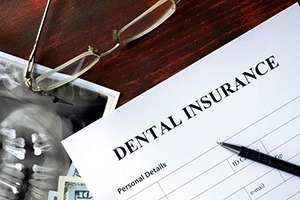Tooth Extractions – West Brookfield, MA
The Virtually Painless Way to Restore Your Oral Health
Are you struggling with a painful toothache? Have you cracked one of your teeth? If you answered “yes” to either of these questions, then the best thing for your oral health may be to have the tooth extracted. Fortunately, our team at West Brookfield Dental offers gentle tooth extractions. A virtually painless way to restore your oral health, this treatment can alleviate your discomfort while helping you take a step toward your new and improved smile. If you want to learn more about tooth extractions in West Brookfield, don’t hesitate to get in touch with our team or read on!
Why Choose West Brookfield Dental for Tooth Extractions?
-
General Dentist and Endodontist In-House
-
Kind, Gentle, and Knowledgeable Team
-
Early Morning and Evening Hours
Reasons Why Tooth Extractions Are Necessary
 If you have a severe toothache, you may simply want to get your tooth out! However, that might not be the best thing for your overall oral health. Whenever possible, we want you to keep as many natural teeth as you can. Of course, sometimes that’s not realistic. If a tooth has sustained severe damage and is no longer salvageable, then we will discuss other options, like a tooth extraction. Rest assured, we will provide you with the compassionate care you deserve every step of the way.
If you have a severe toothache, you may simply want to get your tooth out! However, that might not be the best thing for your overall oral health. Whenever possible, we want you to keep as many natural teeth as you can. Of course, sometimes that’s not realistic. If a tooth has sustained severe damage and is no longer salvageable, then we will discuss other options, like a tooth extraction. Rest assured, we will provide you with the compassionate care you deserve every step of the way.
The Process of Removing a Tooth
 The process of removing your tooth will depend on a few things, including whether or not the tooth has erupted. If it’s still underneath the gumline, then our West Brookfield dentist will numb your mouth thoroughly before creating a small incision. From there, we can gain access to the tooth before removing it.
The process of removing your tooth will depend on a few things, including whether or not the tooth has erupted. If it’s still underneath the gumline, then our West Brookfield dentist will numb your mouth thoroughly before creating a small incision. From there, we can gain access to the tooth before removing it.
If the tooth in question has already broken through the gumline, then the procedure will look slightly different. Of course, the first step will remain the same: numb your mouth and ensure you’re comfortable. From there, we’ll use a special pair of forceps to gently rock your tooth loose.
Tooth Extraction Aftercare
 Following the procedure, our dental team will provide you with a list of specific aftercare instructions. Some general best practices you will find on that list are:
Following the procedure, our dental team will provide you with a list of specific aftercare instructions. Some general best practices you will find on that list are:
- Take prescribed or over-the-counter pain medication as instructed.
- Keep your mouth clean by brushing and flossing daily (be careful around the extraction site).
- Drink plenty of water and avoid sugary or alcoholic beverages.
- Use a cold compress (or towel-wrapped ice pack) to keep swelling to a minimum.
- Eat soft foods, like yogurt, applesauce, and oatmeal.
- If your symptoms get worse after three days, contact your dentist right away.
Understanding the Cost of Tooth Extractions

If removing one or more teeth is the best choice for your oral health, then you naturally might be wondering what your out-of-pocket expenses will be. In short, the best way to get an accurate estimate is by talking to our West Brookfield dental team directly. That way, we can take important factors into account – from how many teeth you need extracted to if you have available dental insurance benefits. However, if you already have an appointment on the calendar and want to learn more about the cost beforehand, then you’re welcome to read on as well!
Factors That Can Affect Tooth Extraction Cost

You know that there isn’t a one-size-fits-all answer when it comes to the cost of tooth extractions, but what are the factors that play a role? Well, there are a few! Here are four that we will consider when creating your treatment plan:
- The number of teeth you need extracted – Naturally, having several teeth removed comes with a higher upfront investment than just having one extracted.
- The type and location of the tooth – Generally, teeth that are farther back in your mouth cost more to remove.
- The kind of extraction required – There are both simple and surgical tooth extractions, and each comes with its own cost.
- How you choose to replace the tooth – Dental implants tend to cost the most upfront, but it’s important to remember that they also last significantly longer than traditional dentures and bridges.
Does Dental Insurance Cover Tooth Extractions?

Do you have dental insurance? If the answer is “yes,” then you naturally want to use any available benefits you have to help cover the cost of your tooth extraction. Fortunately, many providers cover upwards of 50% of the price because tooth extractions are considered major dental procedures. Of course, dental plans vary from patient to patient as well, which is why we always recommend reviewing the fine print on yours instead of assuming what percentage will be covered. If you have any trouble understanding your benefits, then don’t hesitate to get in touch with your provider directly or schedule an appointment with our team.
How to Make Tooth Extractions Affordable

Would you prefer to space out the cost of your care into manageable payments instead of paying for the whole thing upfront? With LendingPoint, you can! Signing up is easy, and they’ve helped countless patients get the preventive, restorative, and emergency dentistry they need without worrying about the cost. If you have any questions about this financial solution, don’t hesitate to get in touch so we can help.
Tooth Extractions FAQs
Does Getting a Tooth Extracted Hurt?
Are you worried that the tooth extraction process will hurt? Good news: our West Brookfield dentist will go above and beyond to make your experience as comfortable as possible. At the beginning of your appointment, they will numb the area thoroughly, so you don’t feel any discomfort. At most, you will feel some slight pressure from them working to remove your teeth. Following the procedure, some soreness is natural. To combat this, we will provide you with a list of aftercare instructions designed to prevent infection, reduce puffiness, and promote healing.
What’s the Recovery for Tooth Extractions Like?
Naturally, you may be wondering exactly what to expect during the recovery process. As previously mentioned, some soreness and discomfort are natural. If you experience any, then you can place a cold compress against the outside of your cheek and take an over-the-counter pain reliever.
When it comes to eating, it’s best to stick to soft foods, like oatmeal, soup, and yogurt. Make sure to temperature-check all of your meals and drinks so they aren’t too hot or cold (your mouth might be especially sensitive). It’s also worth mentioning here that you should not use a straw, smoke, or do anything else that can increase your chances of having a dry socket.
While the healing process varies, you should begin to feel better around day three. If the pain worsens or you’re exhibiting signs of infection, then get in touch with your dental team right away.
What Are My Options for Replacing a Missing Tooth?
If your tooth was extracted due to severe decay or damage, it’s important to fill the gap in your smile. Neglecting to do so can cause your teeth to shift out of position, can weaken your bite, and can take a toll on the appearance of your smile. Luckily, there are several tooth-replacement options available, which can seamlessly restore the look and function of your smile. One of the most sought-after solutions is dental implants. Not only do they have a 30+ year lifespan, but they are the only tooth-replacement option that replaces both the root and the crown of your missing tooth.
What Can I Do to Speed Up the Healing Time?
Although it may seem inconvenient at first, prioritizing rest and relaxation following your tooth extraction is of the utmost importance. So, the best thing to do is follow your dentist’s instructions to avoid delaying the healing process. Some best practices include:
- Avoiding strenuous activities, like working out, for at least 48 hours.
- Keep your head elevated, even while you sleep.
- Don’t touch the wound with your tongue or hands.
- Steer clear of acidic, spicy, and crunchy foods.
- Stay hydrated.
- Only take pain medication that’s recommended by your dentist
